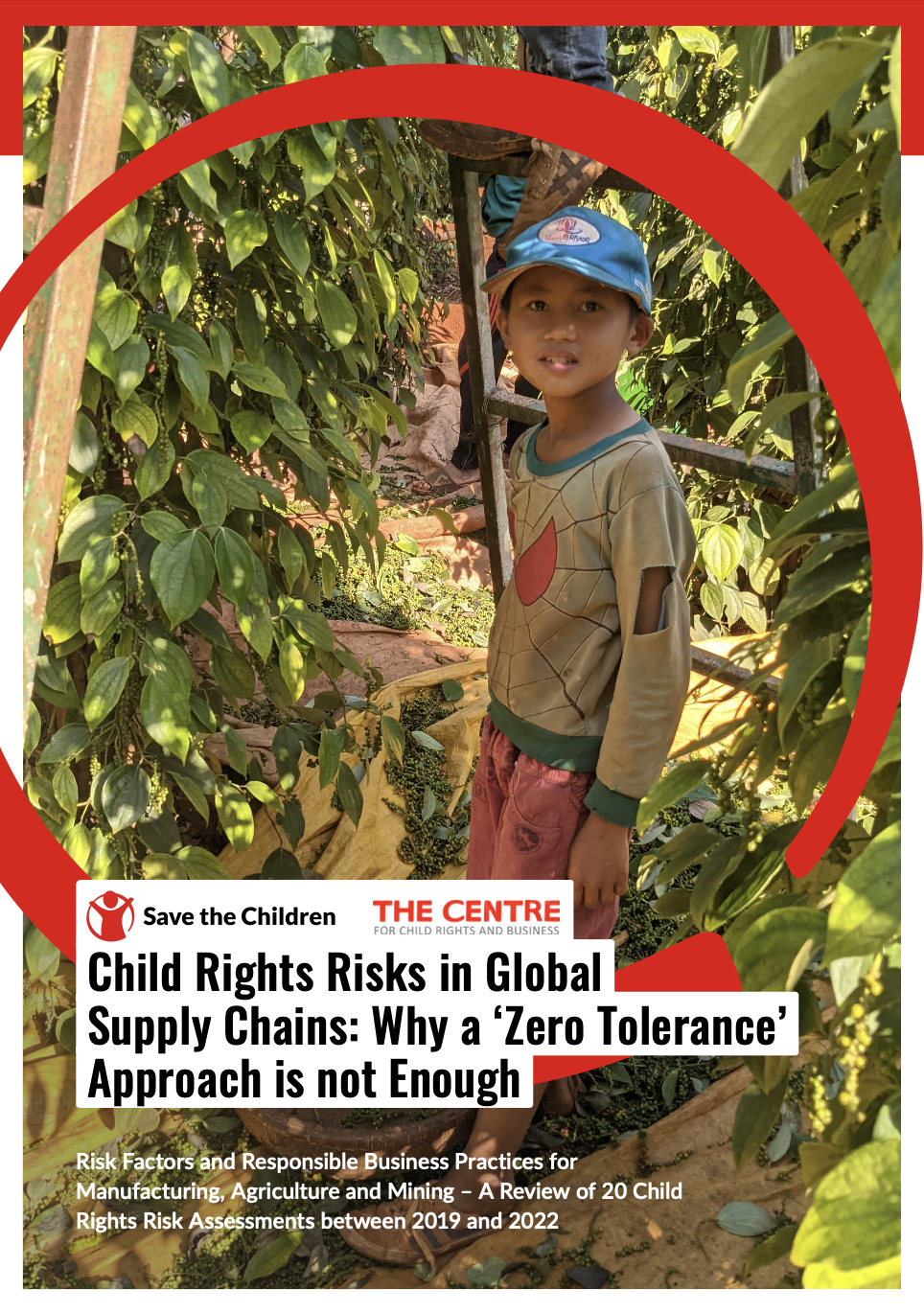

Hong Kong, 12 May, 2022: In partnership with Save the Children, The Centre for Child Rights and Business (The Centre) published a study on Child Rights Risks in Global Supply Chains: Why a ‘Zero Tolerance’ Approach is Not Enough – Risk Factors and Responsible Business Practices for Manufacturing, Agriculture and Mining.
The study involved reviewing child rights risks assessments conducted between 2019 and 2022, and assessed the results of 20 supply chain child rights risk assessments for public and private partners in Asia, the Middle East, Africa, and South America.
Key findings from the study include:
Child labour is Almost Endemic, with direct evidence of child labour found in 10 of 20 assessments, and a very high risk of child labour in eight of the remaining 10 assessments.
Low Income and High Education Costs Drive Child Labour, incomes in all assessed countries and sectors are significantly lower than the living wage, leading to poverty and denying children and families their basic rights.
Lack of Formalisation is a Multiplier of Child Rights Risks in key sectors, informal work involves low wages, deprives workers and families of access to social security and lacks health and safety protection.
Zero-tolerance Policies Marginalising Youth and drive them towards hazardous work.
Manufacturing Industry: No Access to Childcare is an ongoing challenge affecting all workers, particularly impacts female migrant workers, who are forced to leave their children in the care of their extended families.
Agriculture: Farmers Depend on their Children’s Contribution Most agriculture communities rely heavily on children’s involvement on their family farms.
The report recommends various strategies and ways to identify and address child rights violations in global supply chains. For detailed findings and recommendations, the full report is available for download here.
By using this website, you agree to our use of cookies. We use cookies to provide you with a great experience and to help our website run effectively.